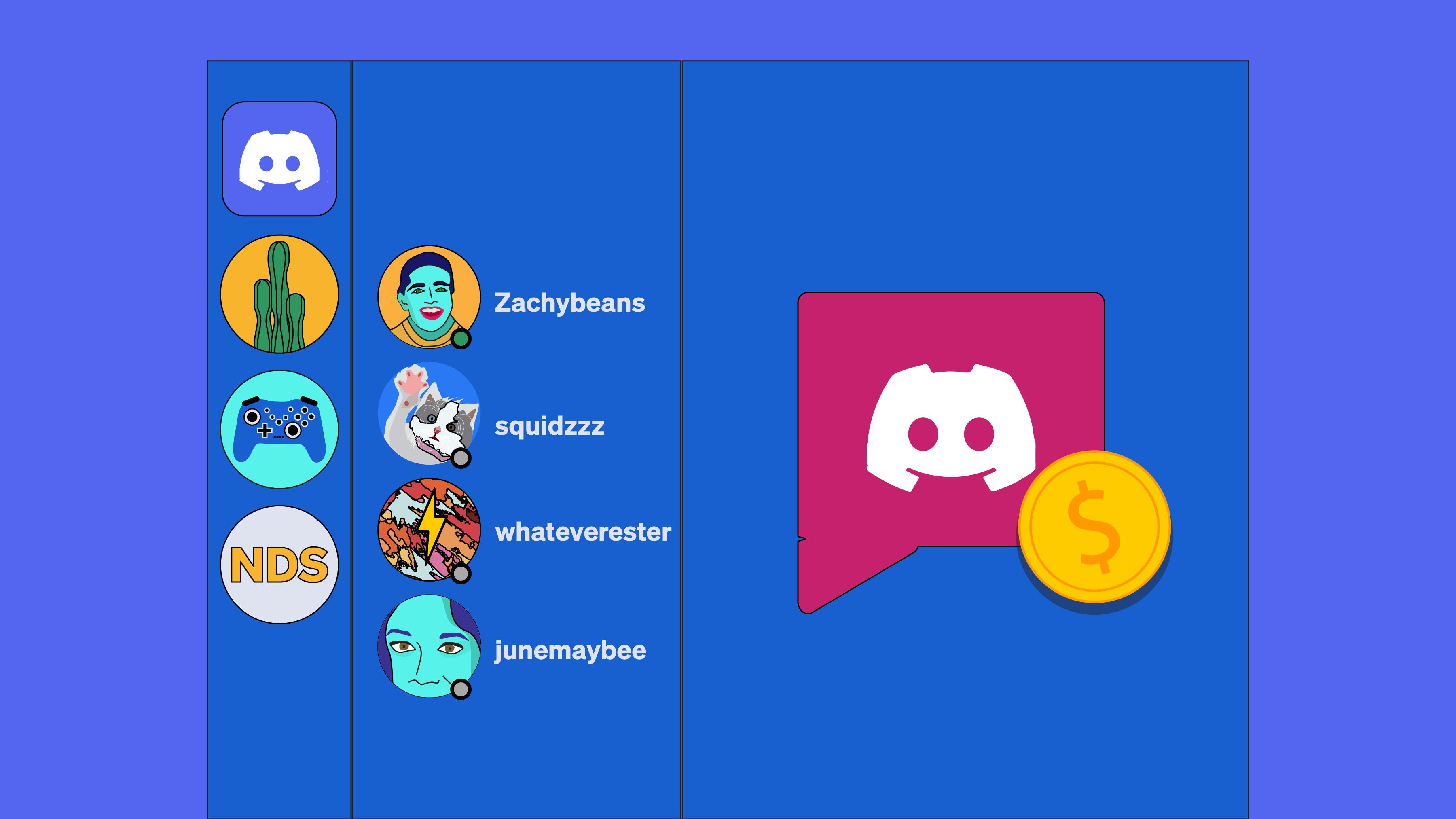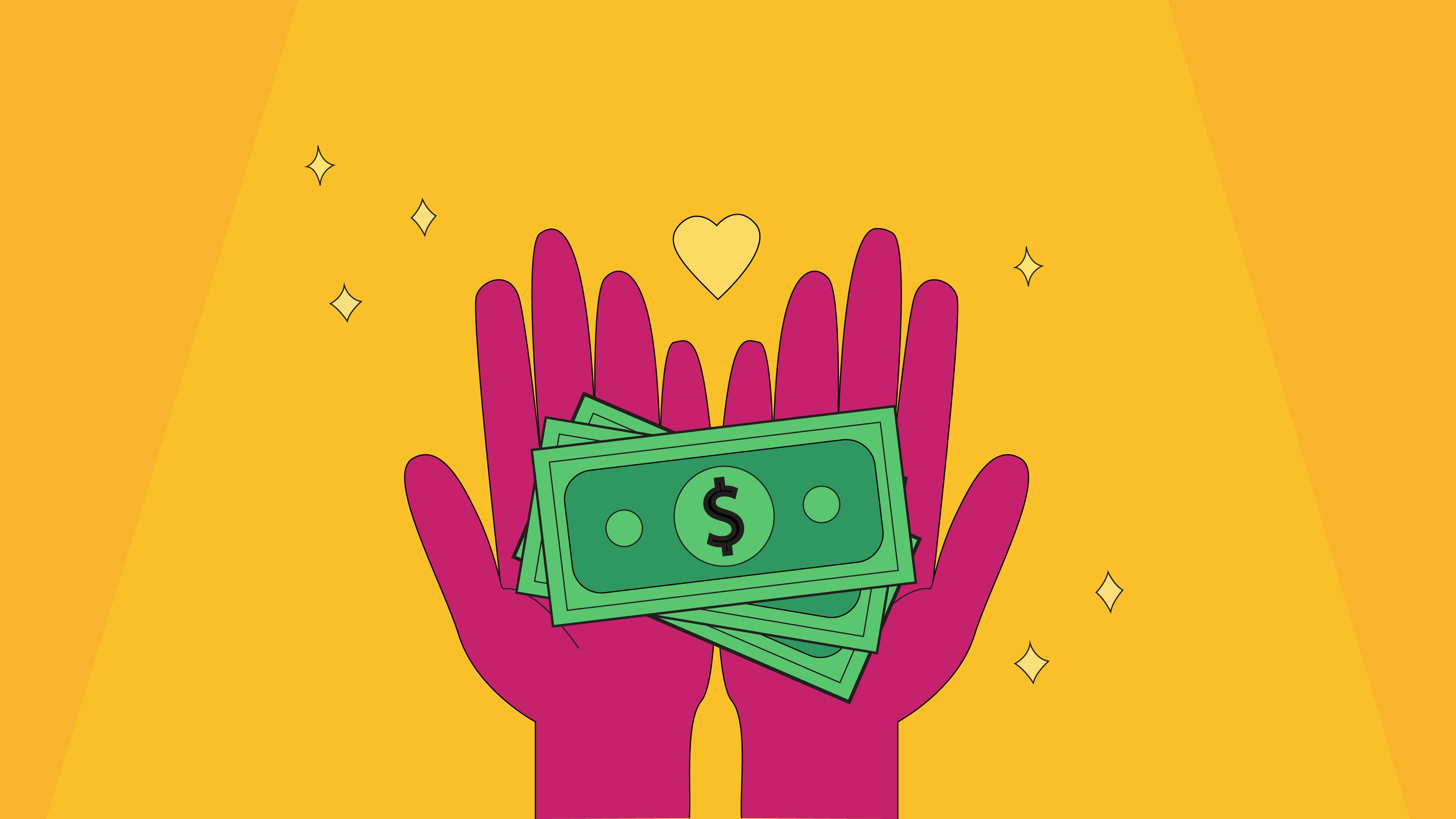Suppose you're an individual looking to start a personal fundraiser for a personal cause. In that case, you're likely familiar with crowdfunding—the practice of funding a personal goal or venture by raising multiple small amounts of money from many people, typically via the internet.
Whether you need to raise funds to attend college, pay for serious surgery, or adopt a new family member, crowdfunding is an excellent way to spread the word about your cause and make your goals happen.
There are some essential things to keep in mind as you launch your personal fundraiser. In this article, we'll cover the top tips for running successful crowdfunding campaigns and give you some ideas for fundraisers, including:
- 7 tips for successful personal fundraiser campaigns
- 7 types of personal fundraisers
7 tips for successful personal fundraiser campaigns
1. Research and prepare for your campaign
This tip won't work for fundraisers with an emergency need or a tight deadline. But, if you have time to plan and research your campaign, you definitely should.
To run a successful campaign, take the following steps to get ready to launch your fundraiser:
- Choose a great crowdfunding platform
- Search for other similar campaigns and study what made them successful
- Learn more about the proper ways to ask for donations
- Decide if you should host an event in conjunction with your fundraiser
- Look for marketing ideas on how to get the word out
2. Ask for donations as early as possible
Promote your fundraiser the same day you launch it (and the early days that follow), to set yourself up for fundraising success.
In fact, almost half of successful campaigns' funds are raised in the first and last few days of their duration.
This means you have a small amount of time to spread the word and ask for donations from your family members, friends, and community members.
Don't forget to use social media to share your fundraiser—the earlier you promote your fundraiser, the better chance that you'll reach or exceed your fundraising goal.
3. Ask the right people for donations
Nobody knows your network better than you, so you should be able to tell how likely they would be receptive to donating to your personal fundraiser.
For example, someone who has lost a loved one to skin cancer will likely want to donate to a crowdfunding campaign raising money for skin cancer research.
Similarly, suppose you're running a personal fundraiser to fund your campaign for City Council. In that case, you probably aren't likely to receive any donations from family members and friends who belong to a different political party or disagree with your political ideals and platforms.
These situations are to be expected from running a fundraiser.
While not everybody will be as excited about your project or cause, some might be super enthusiastic about helping you achieve your fundraising goals.
Want to make the most out of your time and energy in your campaign and increase its success? Reach out to the people who are most likely to contribute.
When you reach out to them, include your Braid Pool Link to provide an easy way for them to send their donations right when they see your message.
Click here to learn more about Braid Pool Links.
Do your best to do outreach to result in the highest return on your investment. Fundraising is mostly a numbers game, so ensure you're not narrowing your options too much—general Facebook and Instagram posts promoting your campaign are still great marketing moves.
4. Be specific about what the money will fund
The more information you can give about your personal fundraising, the better. After all, very few individuals will want to donate to a vague campaign that doesn't say what their contributions will go towards.
Be as specific as you can be when describing how the donations will be used. If you can, designate a timeline for when the funds will be used or explain how each amount will help you accomplish certain parts of your goal.
Being clear about where you will allocate funds in what time frame will help establish transparency with your donors, making it more probable that they'll trust you and give to your cause.
Specificity can help donors feel confident knowing that their gift will go toward a meaningful, productive cause instead of sending their money into a black hole.
5. Offer incentives (when you can)
Incentives can be great perks for donors, but they only work for specific types of personal fundraisers. For example, suppose you want to raise money to pay for necessary surgery. In that case, you probably don't have the time or energy to offer incentives for donors to receive after they donate a certain amount.
Incentives work well for creative projects, weddings and honeymoons, trips and adventures, and similar campaigns. These types of fundraisers could be the perfect time to incentivize donations by offering things like:
- Handmade art or original music (or advance copies of your creative project)
- T-shirts or hats
- Social media shoutouts
- Free tickets to local events
- Handwritten thank-you notes
Giving incentives gives your donors perks to donate and remember your fundraiser. It also encourages them to donate more money. Just make sure you pick something your donors will be excited about.
6. Write compelling copy on your fundraiser page
Launching a personal fundraiser requires telling a compelling story—why do you need to achieve your goal or fund money for your cause? What's the motivation driving you to complete this campaign successfully?
On your fundraising page, tell the story shortly and concisely. If you're using Braid Money Pools to collect your funds and host your campaign, you can briefly write about your goals, cause, or project on the Pool Link.
You can:
- Talk about your motivation behind your fundraiser.
- Tell donors where you will allocate the money.
- Talk about how much money you've raised and how much more you need.
Try to avoid cookie-cutter descriptions and use the space to describe what makes it personal to you. Personalize your copy to help your personal fundraiser stand out and persuade your community, friends, family members, and followers to donate.
7. Send updates on your campaign
With Braid Money Pools, your fundraiser has no deadline. It can last weeks or even months.
Donors will want to know how the campaign is going and how their money is being used—so be sure to keep them updated.
You can:
- Send them videos, photos, and written updates through email, social media, or text to show you're invested in your fundraiser and are using the funds wisely.
- Consider thanking donors personally, including a written update to keep them engaged with your project.
Keep your posts engaging and short, and include media when you can. If you're short on time or energy, consider inviting an admin to your Braid Money Pool to track who has donated and who to reach out to with updates.
Ready to start your fundraising campaign with Braid Pools? Click here to learn more.
7 Types of Personal Fundraisers
Now that we've learned top tips on running successful personal fundraising campaigns, let's cover seven types of personal fundraisers to start for yourself.
- Artistic projects
- Entrepreneurial endeavors
- Life events
- Medical needs
- Political campaigns
- Trips and adventures
- Educational expenses
1. Artistic projects
Everyone has different ideas, talents, and ways they express themselves. If the artist in you is itching to create something new, but you're short on funds, consider setting up a Braid Money Pool dedicated to getting your creative energy out into the world.
Personal fundraisers for artistic projects could work for:
Musicians: Funding the recording of an album, buying new instruments or musical equipment, going on a tour, starting a music studio for producing endeavors, or starting your musical journey with lessons
Visual artists: Funding a studio rental, investing in new paints or tools, hosting an art show, taking art courses, going to an artist residency
Dancers: Attending dance workshops, buying new dance clothes or shoes, hosting a dance showcase, going on a trip to audition for dance companies
Writers and poets: Funding a writer's residency, taking a writing workshop, taking time off from work to write a book, taking a screenwriting course
2. Entrepreneurial endeavors
Let's say you're ready to quit your day job and take a massive leap into starting your own venture. You need seed capital, right?
You could raise money to fund entrepreneurial endeavors like:
- Starting a venture capital fund
- Buying stock to starting a clothing line or e-comm business
- Signing a new lease to start a restaurant
- Starting a nonprofit to support an important cause
- Starting a record label or publishing company
- Diving into freelancing after working 9-5 for years
- And so much more!
Raising money for entrepreneurial endeavors can help you find your bliss, do what makes you happy, and maybe even change the world.
3. Life events
Let's face it—huge life events are pretty expensive. Sometimes rallying your community for donations can make your big transitions go much smoother.
Life events can look like these:
- Having a baby
- Adopting a child
- Buying a house
- Getting married
- Moving to a new country
- Going on a honeymoon
These types of personal fundraisers are likely only going to get donations from your close friends and family, so be sure to network in your immediate community.
4. Medical needs
Unfortunate accidents, emergency or life-saving surgeries, ER visits, ambulance bills, hospital stays, and doctor's appointments all fall into this category.
Often, a friend or family member will set up a personal fundraiser for the donations. That way, they can promote the campaign and allocate the money if the person in need doesn't have the time, energy, or ability to handle it themselves.
Sometimes pets even need donations for medical needs—you can set up a fundraiser for your beloved animal, as vet bills can be costly.
5. Political campaigns
If you're running for a political campaign, you'll need a decent amount of funds to take you through the ever-important election year.
Political campaigns often rely on community giving, so you'll want to target individuals who align with your political ideals and beliefs. You'll want to promote the platform you're running on to separate yourself from your competition and make your stance known.
Whether you're running for a local City Council position or the mayor of your city, you'll want to set up a vigorous fundraising campaign with compelling messaging to garner support.
6. Trips and adventures
Flights, accommodations, transport, and even food, aren't cheap when traveling. You may need to raise money to cover the costs if you're planning an epic trip.
Some fantastic trip and adventure ideas you could raise money for are:
- Going on a mission trip to serve underprivileged people in another country
- Going on a rescue mission to help save animals
- Sail boating around the world in one year
- Going on an ecological excursion to study endangered species and wildlife habitats
- Celebrating a big anniversary with a memorable trip
- Going to another country to strengthen your language skills
- And more!
7. Educational expenses
Worried you won't have enough in grants or scholarships? Educational expenses are one of the most compelling reasons to host a personal fundraiser.
With the crushing weight of student debt, rallying your community to help fund your university or grad school experience sets you up for success after graduation.
You could raise money for the following educational expenses:
- Attending college, university, or community college
- Studying abroad
- Attending a professional certificate program, like a computer coding boot camp
- Taking night classes to change careers
- Going to grad school or starting a PhD
- And so much more!
Raise money for your personal fundraiser in one place
Looking for an easy and reliable way to raise money for medical needs, going on a honeymoon, starting a new venture or nonprofit, adopting a child, etc.? Braid can help make sure you keep 100% of the money you collect while making it easy for contributors to donate.



